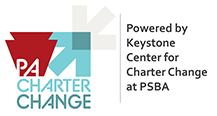Capitolwire: Former auditor general joins efforts to lobby for charter school funding reform.
Capitolwire.com by John Finnerty, December 21, 2021
HARRISBURG — As auditor general, Eugene DePasquale repeatedly took aim at what he and others have described as Pennsylvania’s “worst in the nation” charter school law.
Now out of office, DePasquale has taken a role with the Keystone Center for Charter Change, an initiative of the Pennsylvania School Boards Association. DePasquale, who ran for Congress in 2020, but lost to U.S. Rep. Scott Perry, R-York, said he is waiting to see how the redistricting process plays out before deciding whether to try again for Congress. In the meantime, he’s joined the Center for Charter Change as “resident,” a role in which he is working to draw attention to the need to fix the state’s system for funding charter schools.
DePasquale said that reviews completed while he was auditor general revealed a number of problems with the way charter schools operate and are funded in this state. Those problems haven’t been addressed despite repeated scrutiny by lawmakers and ongoing advocacy by public school groups. “Parents want choice in education, but we need to make sure that they are quality choices and particularly on the cyber funding side of it, I found numerous times where the cost per student wasn’t consistent. wasn’t fair, wasn’t helping the students in the cyber schools,” DePasquale said. “But at the same token, there were some cyber schools that were doing really well and working with them in this research and policy capacity to try to help continue to drive that message,” he said.
DePasquale held a series of public meetings to examine charter school funding, followed by a 2014 special report on the problems plaguing the state’s system of funding the brick and mortar and online cyber schools. In the eight years since then the General Assembly has repeatedly failed to confront the charter school funding concerns even as DePasquale, and others, including Gov. Tom Wolf, have repeatedly urged action. DePasquale’s 2014 report had called for the creation of an independent charter school oversight board along with other recommendations including the call for the state to directly fund charter schools instead of having local school districts pay the tuition of their students who opt to enroll in charter schools.
In his proposed 2021-22 budget, Wolf called for a uniform payment of $9,500 per student to cyber charter schools and a three-tiered payment system to all charters for students with disabilities, depending on their needs. Charter schools are now funded through tuition tied to the cost of educating students in the school district where the student would otherwise attend school. Those costs vary widely across the state and are not tied to the charter schools’ costs of educating those students. In addition, local school officials have complained that some charter schools are labeling students for special education services, a move that allows them to bill the school districts at a higher rate that, again, is not tied to the charter schools’ costs of educating those students. “The worst part is there isn’t a consistent system of funding per child,” DePasquale said. “This is not a new issue, but it is coming to a head,” he said.
Estimates suggest that 1-in-5 dollars of school property tax is now going to charter schools. Local school officials have warned that as they strain to pay their charter school tuition bills they will need to make cuts elsewhere unless the state provides a solution.
Legislation to implement a statewide tuition rate, and reform the way special education in charter schools is funded has been introduced in the state House by Rep. Joe Ciresi, D-Montgomery, as House Bill 272. That legislation hasn’t gotten a vote in the House Education Committee yet.
The charter schools are “playing by the rules that exist,” DePasquale said. “That’s why the rules need to be reformed.”
